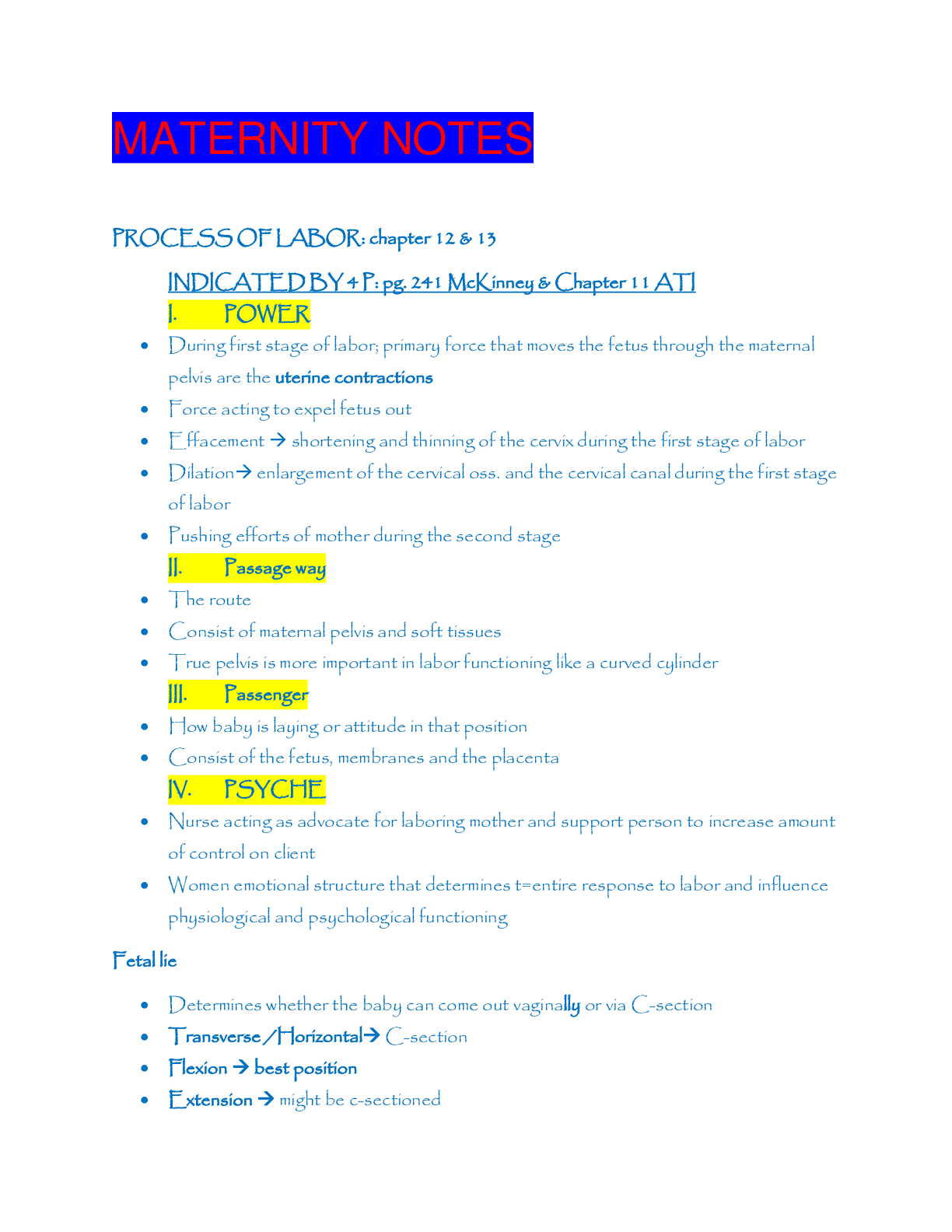*NURSING > Class Notes > Fundamentals exam 2 pp notes (All)
Fundamentals exam 2 pp notes
Document Content and Description Below
Fundamentals exam 2 pp notes Chap 14 Older adult • People who are 65 years old are in the lower boundary for “old age” in demographics and social policy within the United States. However, ... many older adults consider themselves to be “middle-age” well into their seventh decade. • Chronological age often has little relation to the reality of aging for an older adult. Each person ages in his or her own way. Every older adult is unique, and as a nurse you need to approach each as an individual. • America is aging. The number of older adults in the United States is growing, both absolutely and as a proportion of the total population. • There has been a 21% increase in the older adult population since 2002. Part of this increase is caused by the increase of the average life span. The aging of the baby-boom generation and the growth of the population segment older than 85 years contribute to the projected increase in the number of older adults. • When caring for this group of patients, nurses must consider cultural, ethnic, and racial diversity. • The challenge is to gain new knowledge and skills to provide culturally sensitive and linguistically appropriate care. • [Ask students: Do you believe longer life span, better medicine, better treatments, better diagnostic testing, and aging baby boomers makes it easier to treat older adults? Discuss.] Variability Among Older Adults • Most older adults are active and involved members of their communities. A smaller number have lost the ability to care for themselves, are confused or withdrawn, and/or are unable to make decisions concerning their needs. Most older adults live in noninstitutional settings. However, a smaller number have lost the ability to care for themselves. • Aging does not inevitably lead to disability and dependence. Most older people remain functionally independent despite the increasing prevalence of chronic disease. • Nursing assessment provides valuable clues to the effects of a disease or illness on a patient’s functional status. • When you assess older adults, you will need to identify their strengths, weaknesses, and abilities when developing a plan of care. • The physical and psychosocial aspects of aging are closely related. A reduced ability to respond to stress, the experience of multiple losses, and the physical changes associated with normal aging combine to place people at high risk for illness and functional deterioration. • Do not assume that all older adults have signs, symptoms, or behaviors representing disease and decline or that these are the only factors you need to assess. You also need to identify an older adult’s strengths and abilities during the assessment and encourage independence as an integral part of your plan of care Myths and Stereotypes • When health care providers hold negative stereotypes about aging, their actions often negatively affect the quality of patient care. Nursing care of older adults poses special challenges because of great variation in their physiological, cognitive, and psychosocial health. • As nurses, you should not be susceptible to myths and stereotypes. • Some people equate worth with productivity; therefore they think that older adults become worthless after they leave the workforce. Others consider their knowledge and experience too outdated to have any current value. • Ageism typically undermines the self-confidence of older adults, limits their access to care, and distorts caregivers’ understanding of the uniqueness of each older adult. Always promote a positive perception regarding the aging process when you establish therapeutic relationships and show respect to older adults. • Older adults are a significant proportion of the consumer economy. As voters and activists in various issues, they have a major influence in the formation of public policy. Their participation adds a unique perspective on social, economic, and technological issues because they have experienced almost a century of developments. • Even though older adults may be slower and may have troubles with vision, hearing, and dexterity, when you plan care, you will take into account their positive attributes. • Although reduced energy and endurance sometimes affect the process of learning, older adults are lifelong learners. • Older adults have been through the depression, wars, and changes in health care throughout their lives. Living through all of these events and changes, they have stories and examples of coping with change to share. Nurses’ Attitudes Toward Older Adults • Positive attitudes are based in part on a realistic portrayal of the characteristics and health care needs of older adults. • It is critical for you to respect older adults and actively involve them in care decisions and activities. • In the past, institutional settings, such as hospitals and nursing centers, often treated older adults as objects rather than independent, dignified people. The time has come for nurses to recognize and address ageism by questioning prevailing negative attitudes and stereotypes and reinforcing the realities of aging as they care for older adults in all care settings. Developmental Tasks for Older Adults • How older adults adjust to the changes of aging is highly individualized. Be sensitive to the effect of losses on older adults and their families and be prepared to offer support. • ……………………..CONTINUED…………………………. [Show More]
Last updated: 2 years ago
Preview 1 out of 44 pages

Buy this document to get the full access instantly
Instant Download Access after purchase
Buy NowInstant download
We Accept:

Reviews( 0 )
$12.00
Can't find what you want? Try our AI powered Search
Document information
Connected school, study & course
About the document
Uploaded On
Mar 24, 2021
Number of pages
44
Written in
Additional information
This document has been written for:
Uploaded
Mar 24, 2021
Downloads
0
Views
70






